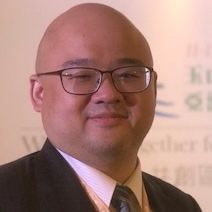SUMMARY
This is AI generated summarization, which may have errors. For context, always refer to the full article.
![[ANALYSIS] 4 more years for Taiwan’s New Southbound Policy](https://www.rappler.com/tachyon/r3-assets/612F469A6EA84F6BAE882D2B94A4B421/img/80F87417F0844FF4B71BDF44BDAECD87/analysis-ph-tw-ties.jpg)


According to The Diplomat’s most recent issue, Taiwan’s New Southbound Policy (NSP) to date has been a “relative success.” Inaugurated in 2016 as President Tsai Ing-wen’s signature foreign policy to expand relations with South Asia, Southeast Asia, Australia, and New Zealand, it has already scored results on several fronts: on the tourism front, visitors from the 18 targeted countries rose 6.8% to over 2.77 million last year, now accounting for 23% of total inbound tourists. The number of students from NSP countries studying in Taiwan also increased to 53,099 last year, while bilateral trade volume continues to stand strong at US$ 111.9 billion. It, however, is not yet a concluded story.
Facing Tsai’s second term and COVID-19
As Tsai prepares to enter her second term amid the global struggle against COVID-19, we can reasonably expect the NSP to continue to be a focus in her ambitions to expand Taiwan’s international engagement. But it is also much more than a strategy: according to the Ministry of Foreign Affairs, Taiwan donated respectively 1.6 million and 1.8 million face masks to NSP countries in its second and third round of international donation efforts, which represents Taiwan’s commitment to the regional community’s humanitarian needs. Other efforts have also been made to share Taiwan’s successful practices and available resources to collectively combat the pandemic. The slogan “Taiwan Can Help” is now truly “Taiwan is Helping.”
The NSP, being the country’s “regional strategy for Asia,” should continue its role in promoting mutually-beneficial, people-centered regional cooperation in Tsai’s second term. While the Ministry of Health and Welfare’s (MOHW) “One Country, One Center program” has continued to make progress in the region, the pandemic crisis should also add more weight to the NSP’s medical cooperation arm. This means more economic and humanitarian benefits for Taiwan and the region. And as the US-China trade war and pandemic pushes disrupted supply chains to reorganize, the NSP should also support relocating Taiwanese businesses to invest in the region. This means more economic and social connectivity between Taiwan and regional countries, including the Philippines.
While whether “deglobalization” is the case still waits to be seen, the pandemic’s challenge for supply chains, business models, food security, and even international stability is already evident. COVID-19 has stirred and exacerbated existent challenges for the region’s outlook, which warrants the need for Taiwan to continue its comprehensive and constructive engagement with the region through the NSP. Good foundations have been set, but they need to be followed up and explore a new momentum of collaboration. The NSP’s multifaceted engagement with the region in the areas of talent incubation, medical and public health, and agriculture have already been rewarded with some early results, and we anticipate the government’s NSP to level up its efforts in the coming years, to lead Taiwan and the region towards a promising future.
On an additional note, the pandemic crisis has also highlighted the importance of private sector responses, subnational government resiliency, and evidence-based transparent policy-making, issue areas which overlap with the NSP’s spirit and many efforts. When the world gradually recovers economically and socially from COVID-19, the NSP should be in a position to play a stronger role in shaping the debate surrounding the future development of the region. Taiwan has much to share, and has long been willing to engage in a mutually-beneficial, people-centered matter.
Building and strengthening international linkages
On the international front, the NSP should also continue to be Taiwan’s focal point for cooperation with other like-minded countries in securing the stability and prosperity of Asia and the Indo-Pacific region. It is in the interests of all to work together in making existent aspirations a reality. This means a need for constant dialogue with counterparts in the US, Japan, Australia, India, and elsewhere, working collectively to ensure the people-centered development of the region. The Yushan Forum (with its underlying diverse innovative partnerships) has played a positive role in this regard since its inception in 2017, and, we believe, it will continue to do so in Tsai’s second term and beyond.
The Philippines has had many speakers participate in the Yushan Forum in the past few years. When former Philippine Vice President Teofisto T. Guingona, Jr. attended the 2017 Yushan Forum, his keynote speech described Taiwanese and Filipinos as brothers and sisters and also close neighbors, and, therefore, the two should “build the economic and social life for a better world, for continued happiness.” This spirit is still at the very heart of Taiwan’s approach towards regional diplomacy, and also its position towards bilateral ties with the Philippines. (READ: New Southbound Policy seen to improve PH-Taiwan ties)
The next phase of the NSP – call it NSP 2.0 if you will – is expected not only to share more of Taiwan’s voice in the regional community and facilitate Taiwan’s engagement with Asia’s new socio-economic transition, but also to reflect Tsai’s strategic vision in reshaping Taiwan’s partnerships with like-minded countries during (and after) the COVID-19 crisis. Our shared aspirations for Asia’s peaceful and prosperous future remain unshaken. While global turbulence might be ahead, Taiwanese people are steadfast and ready to join hands with our Filipino friends in facing these common challenges. – Rappler.com
Dr. Alan Hao Yang is Executive Director of the Taiwan-Asia Exchange Foundation (TAEF). He also serves as Deputy Director of the Institute of International Relations (IIR) at National Chengchi University, Taiwan.
Jeremy Huai-Che Chiang serves as a non-resident research associate with the Taiwan-Asia Exchange Foundation (TAEF).
Add a comment
How does this make you feel?
There are no comments yet. Add your comment to start the conversation.